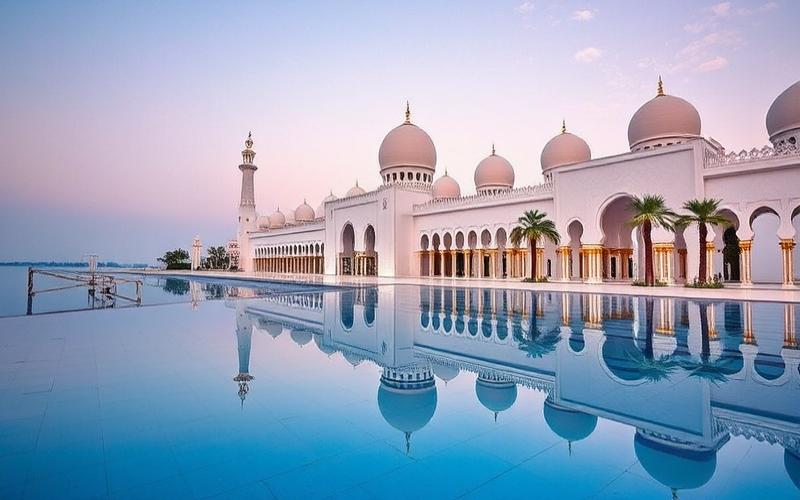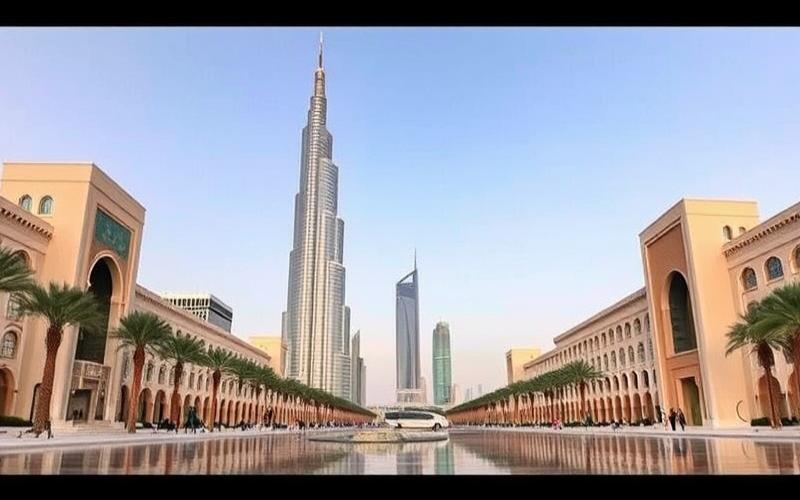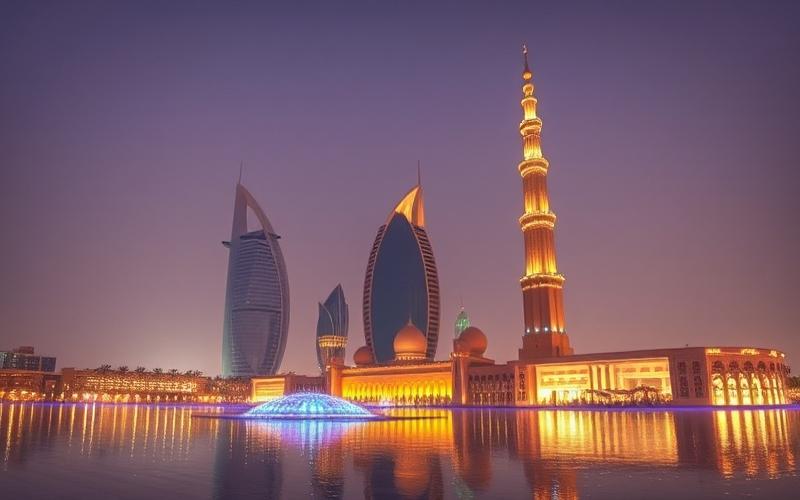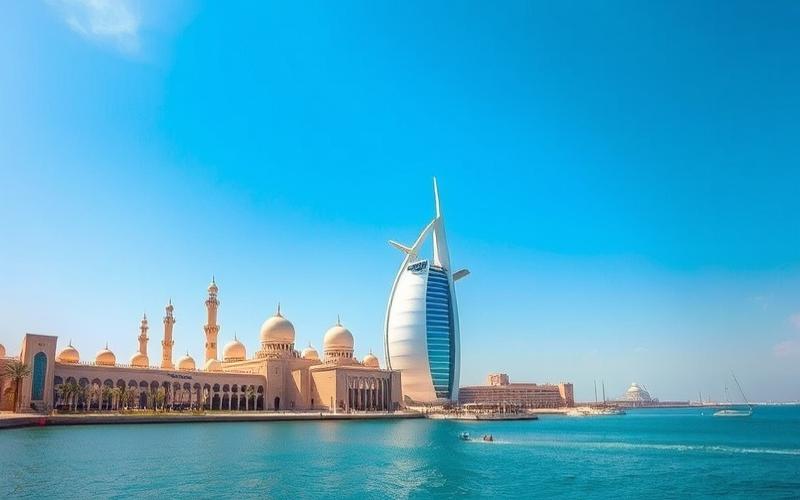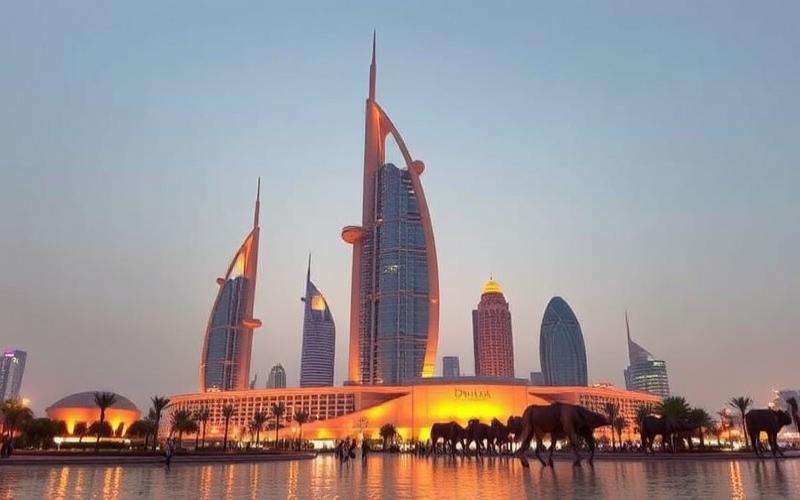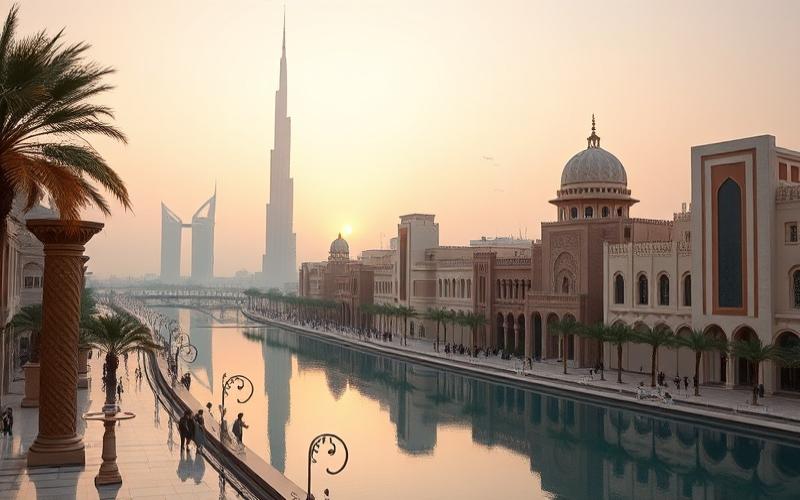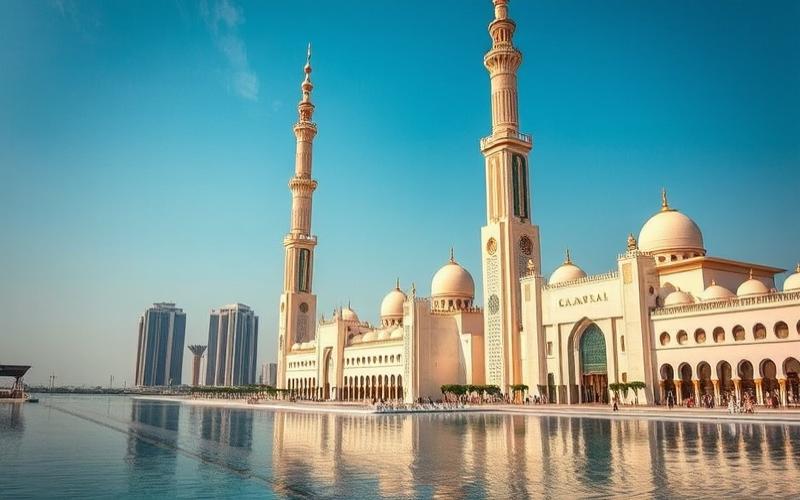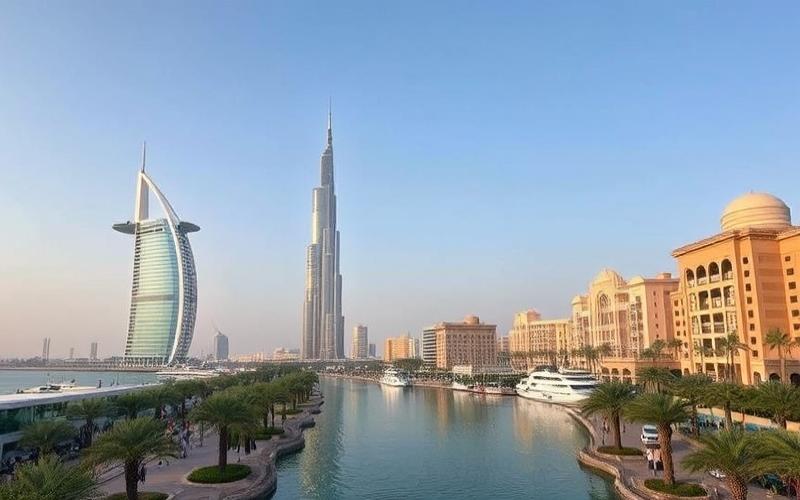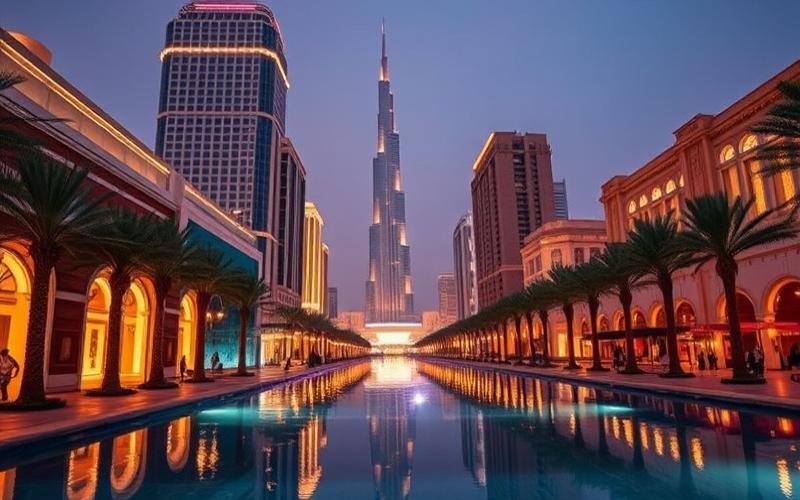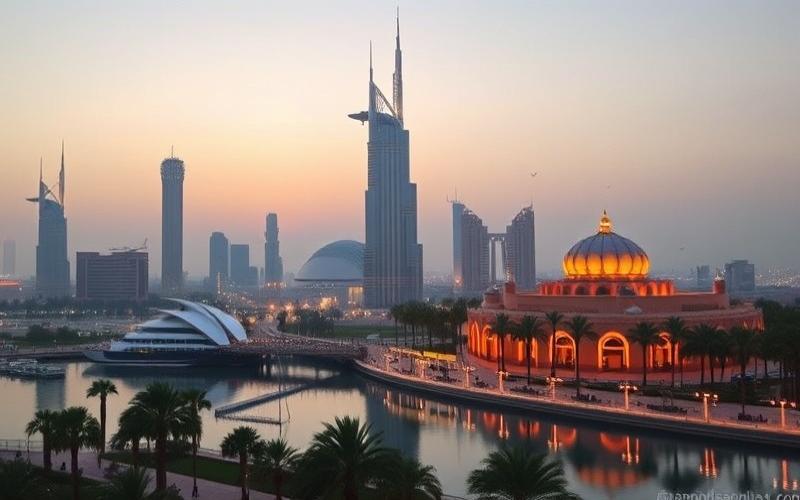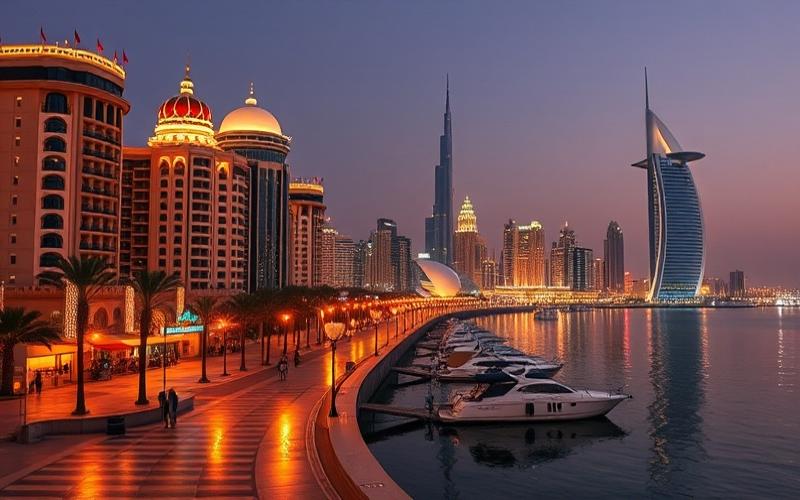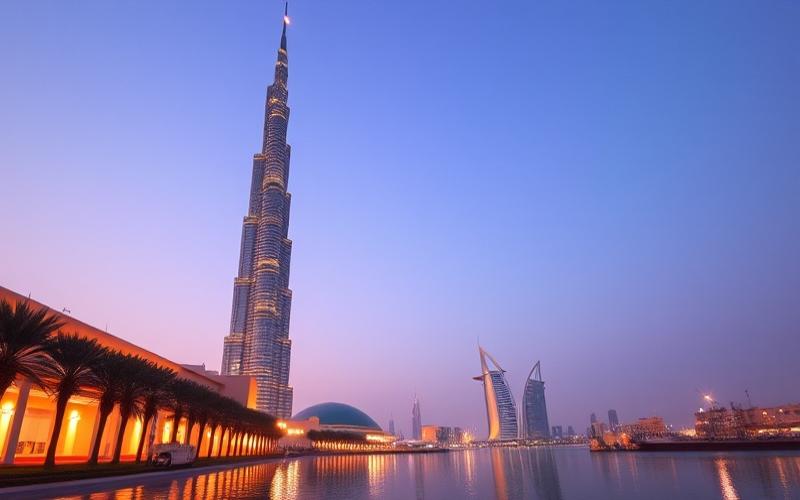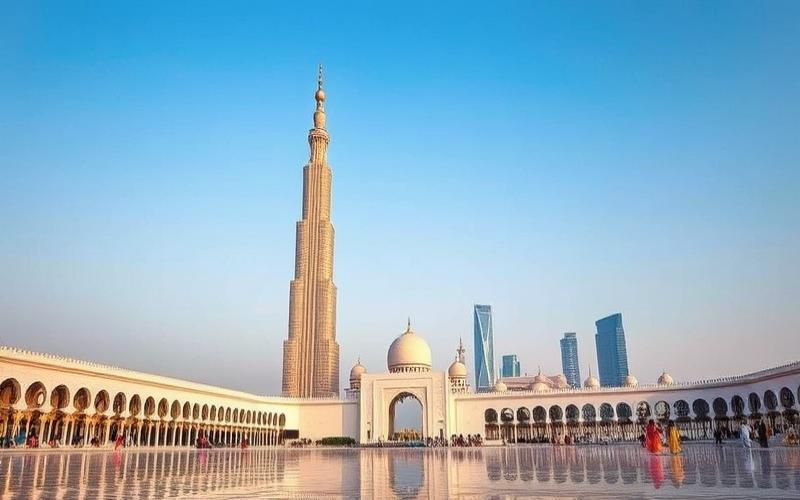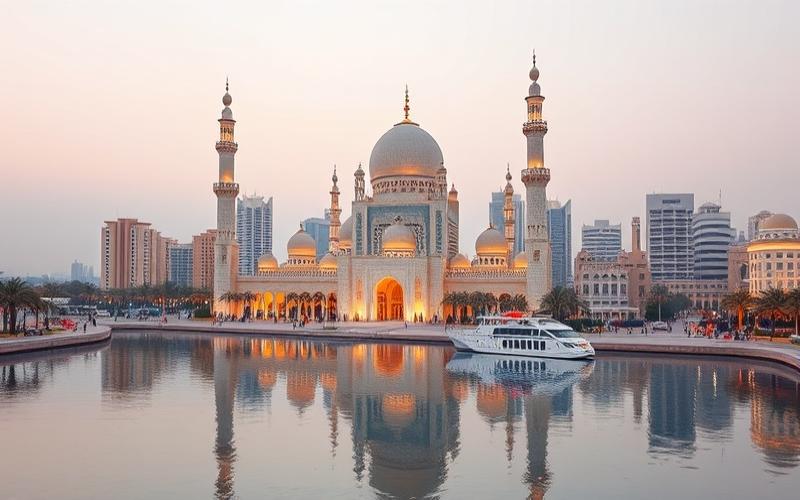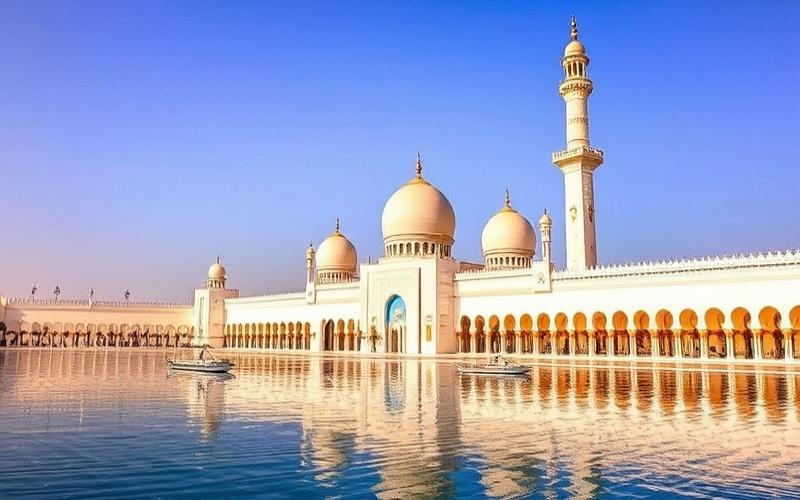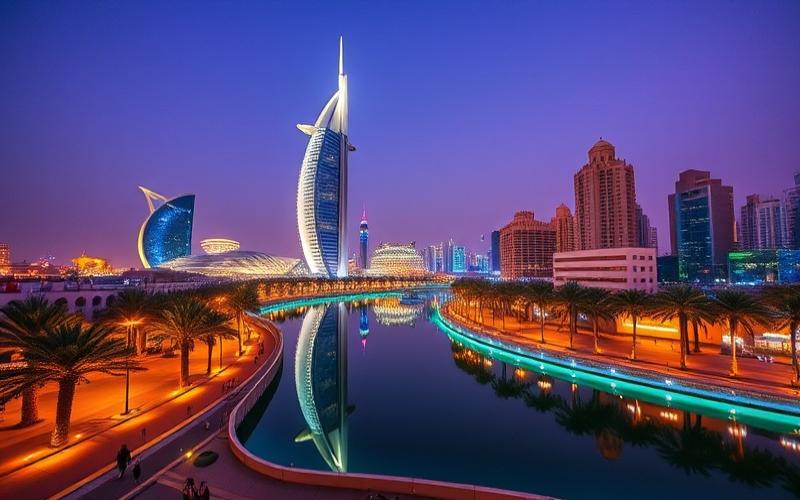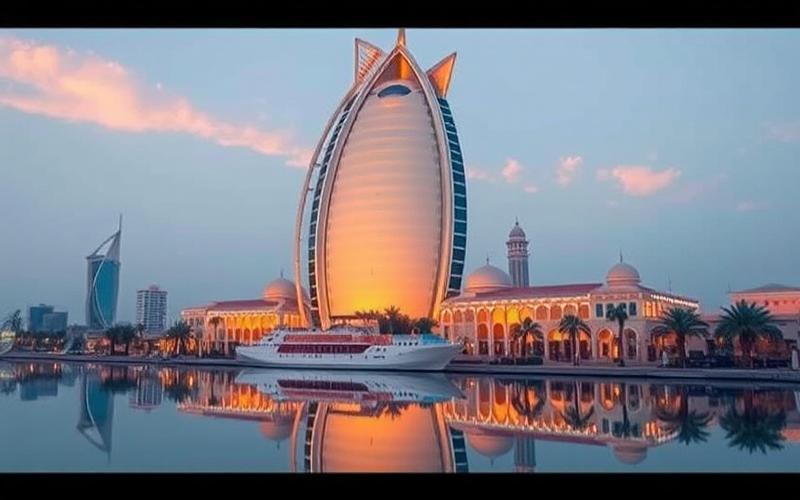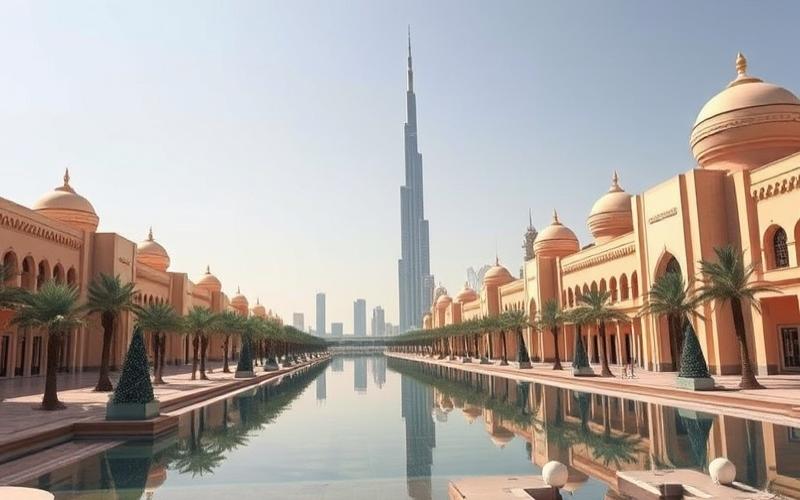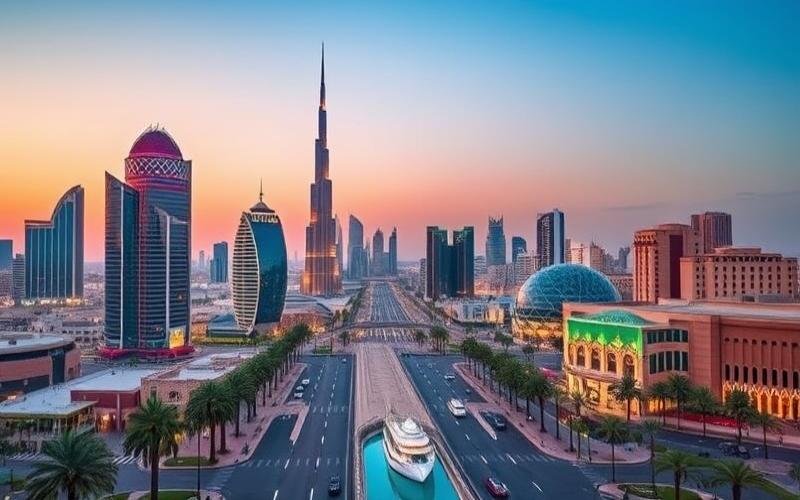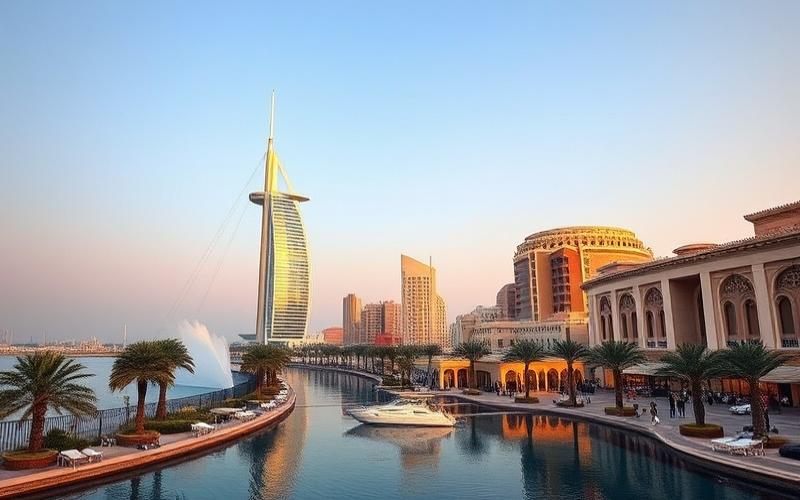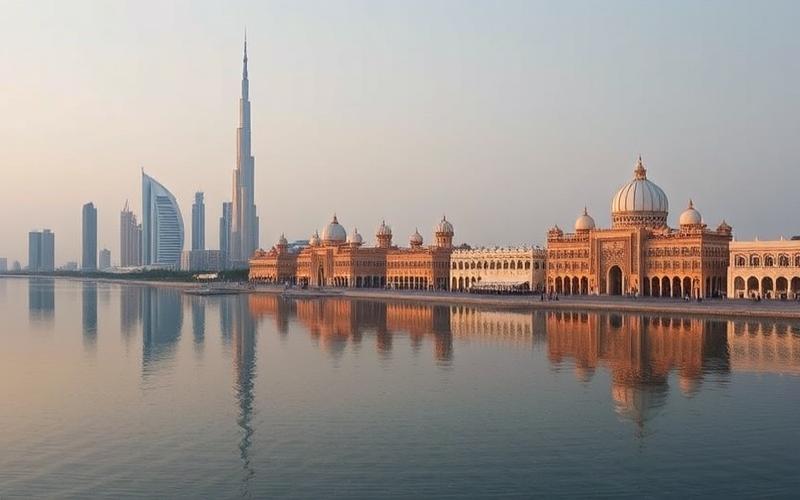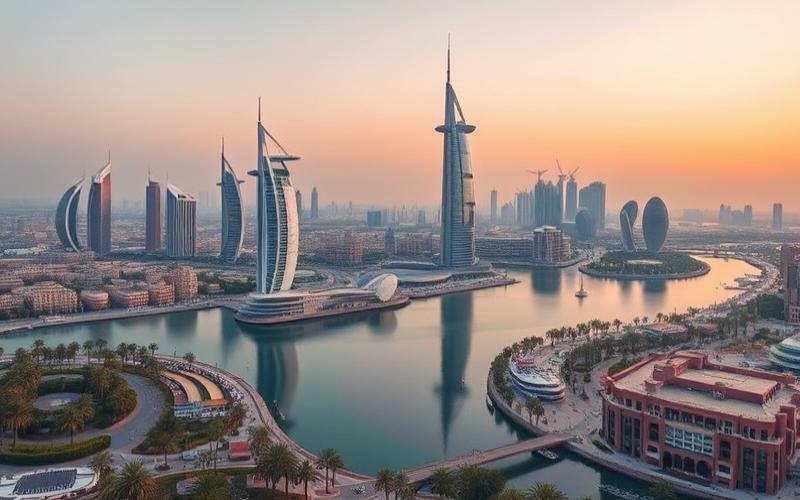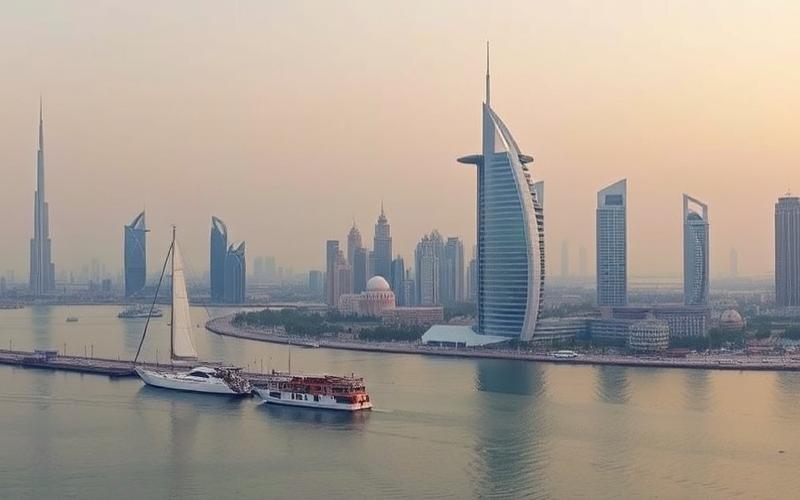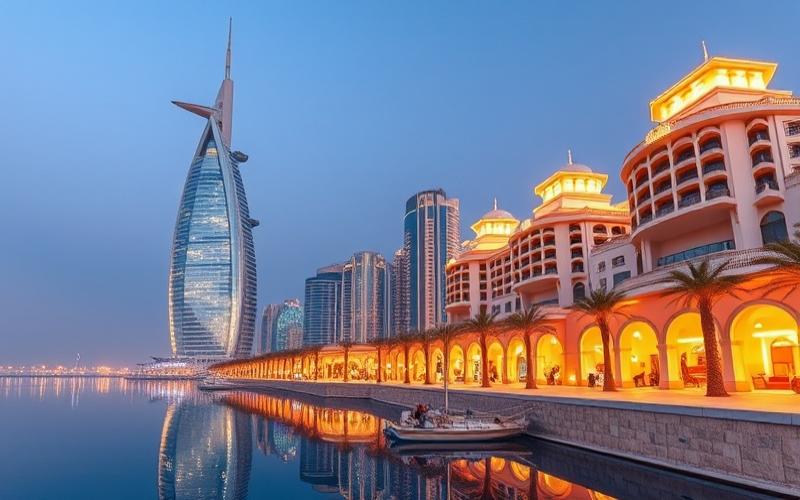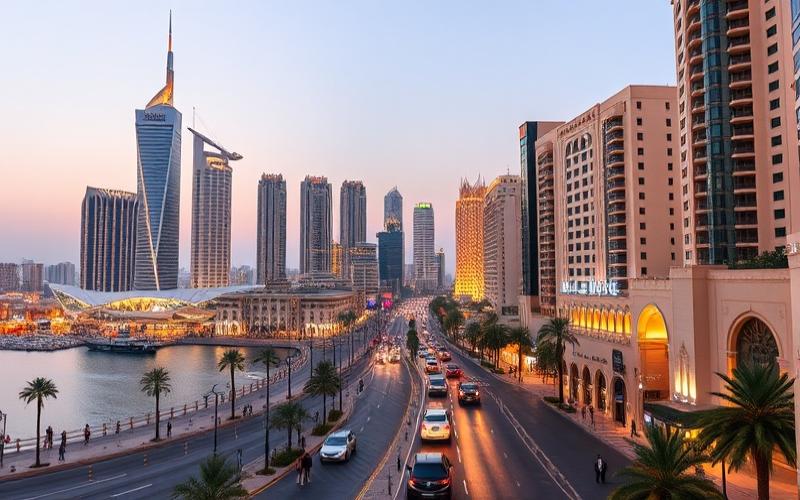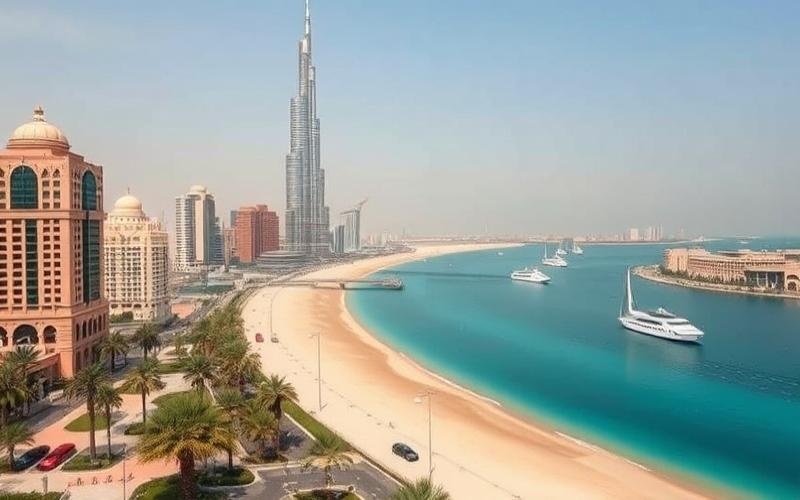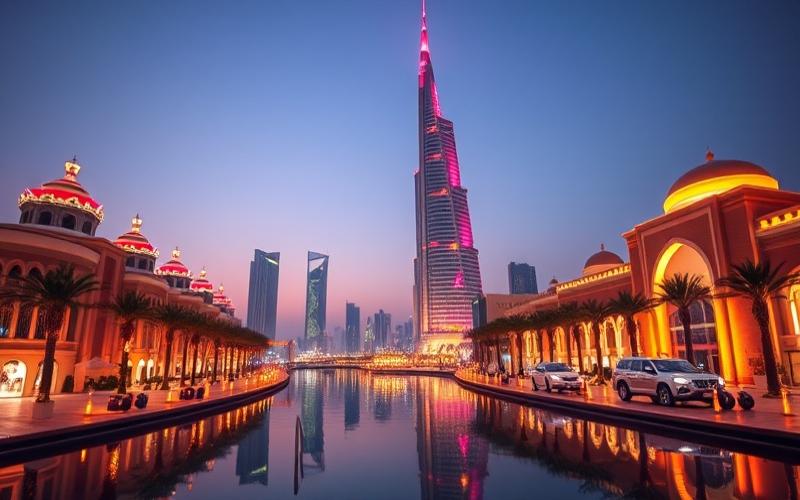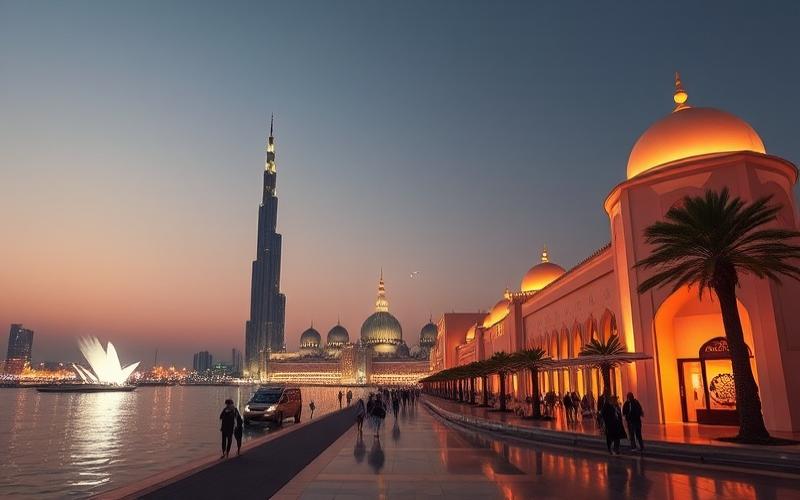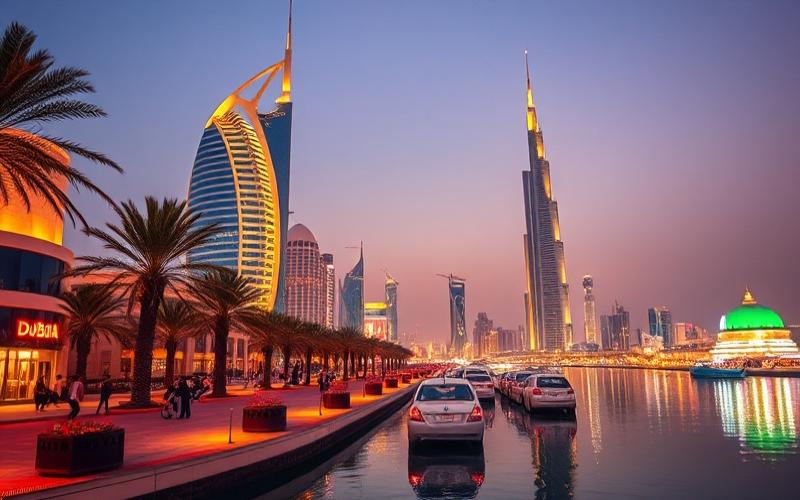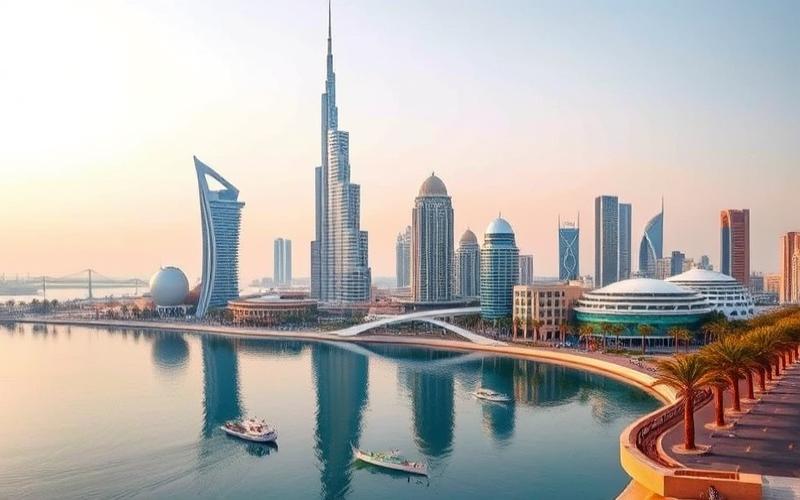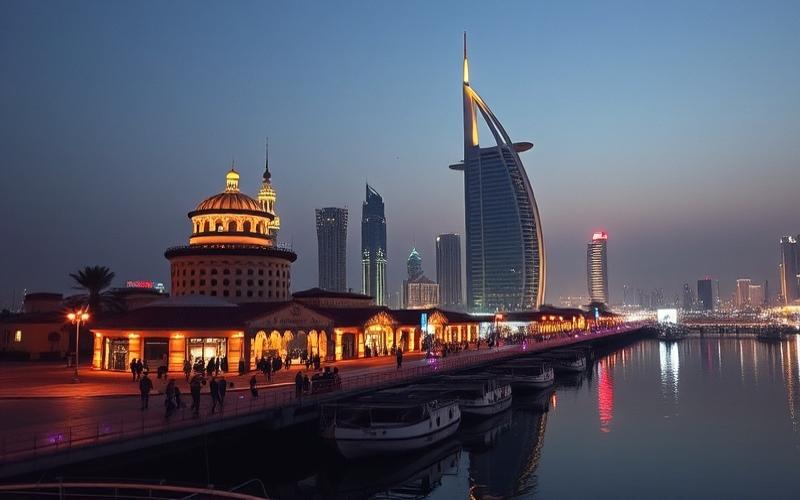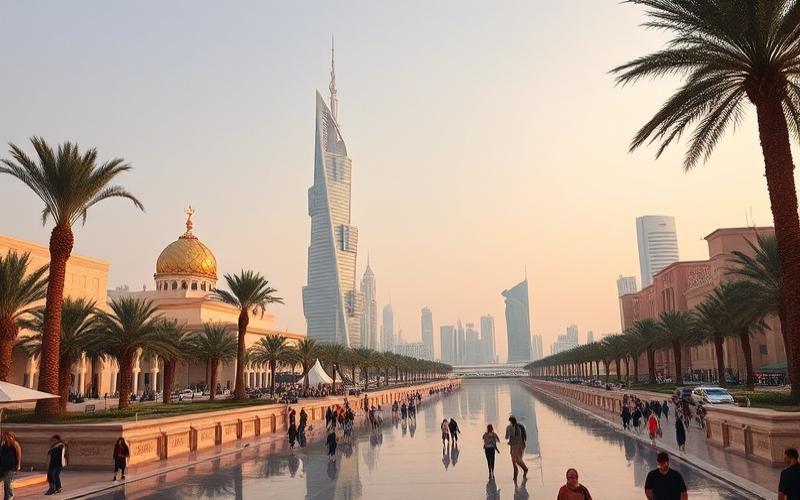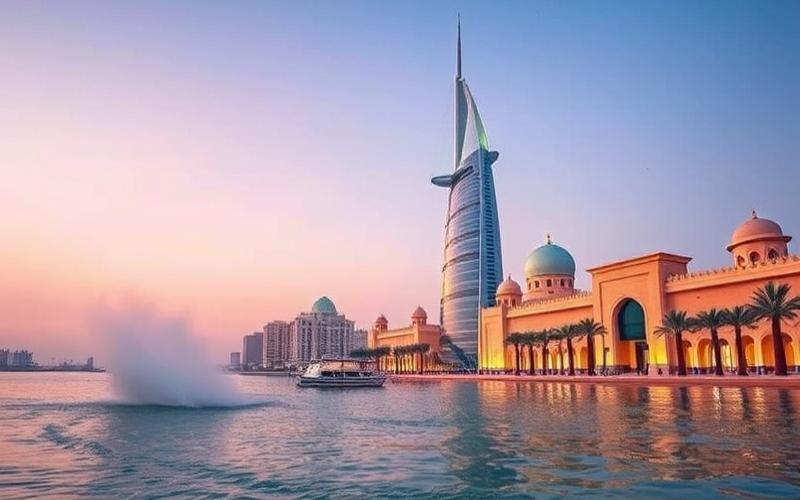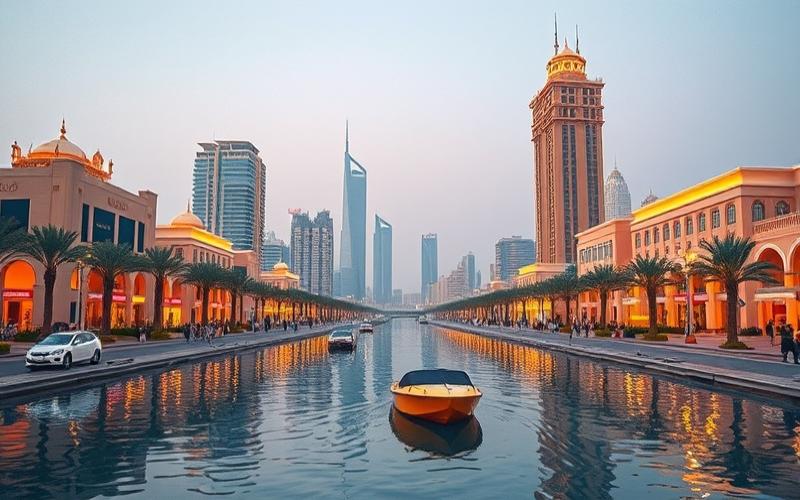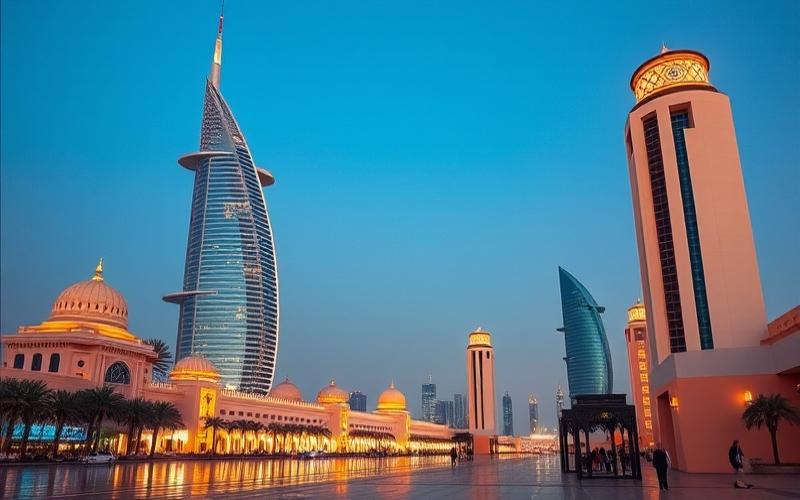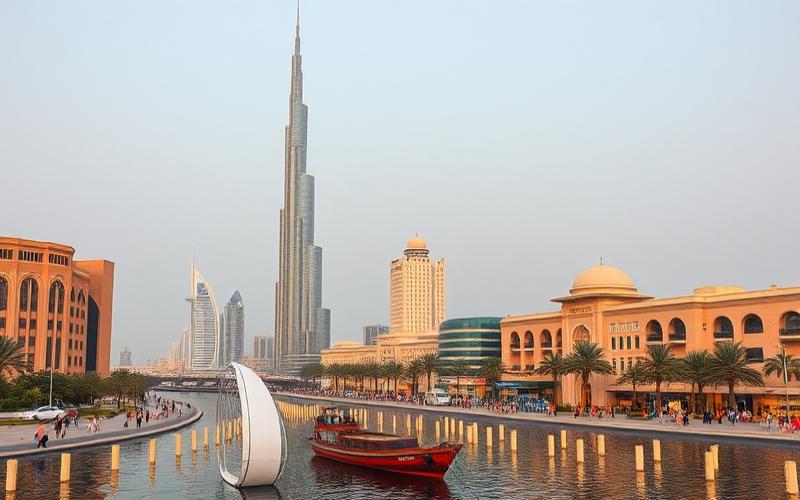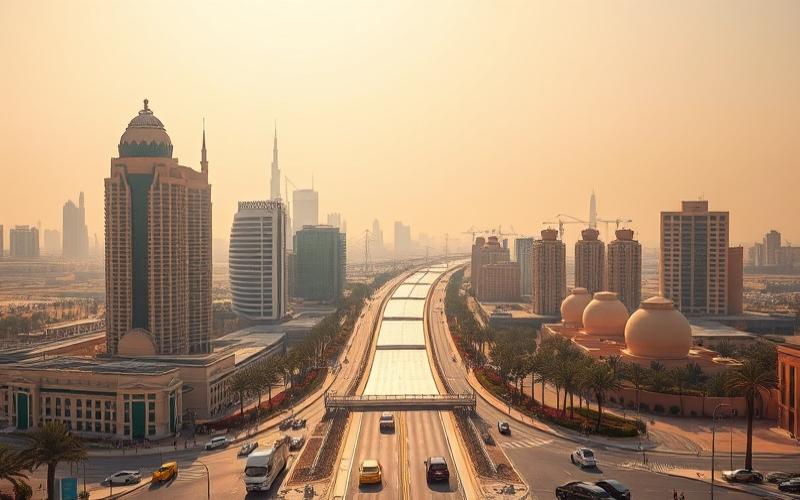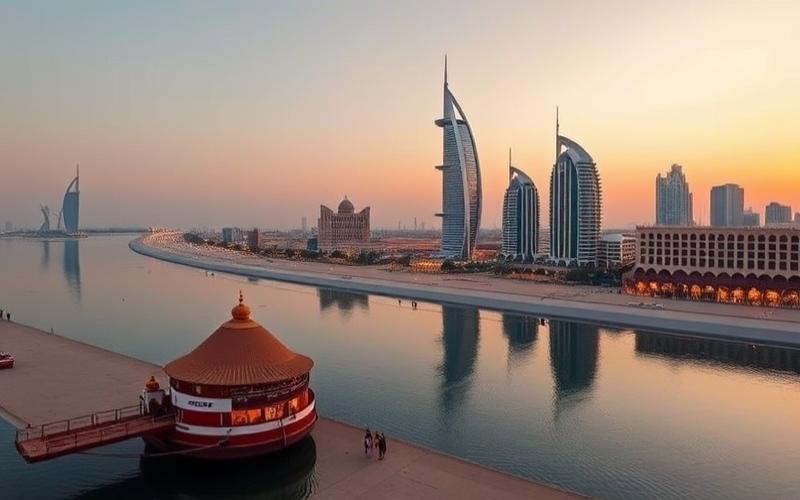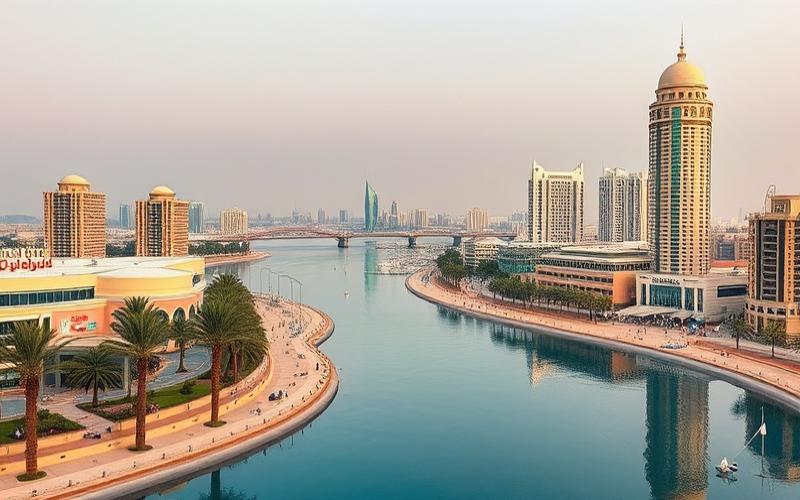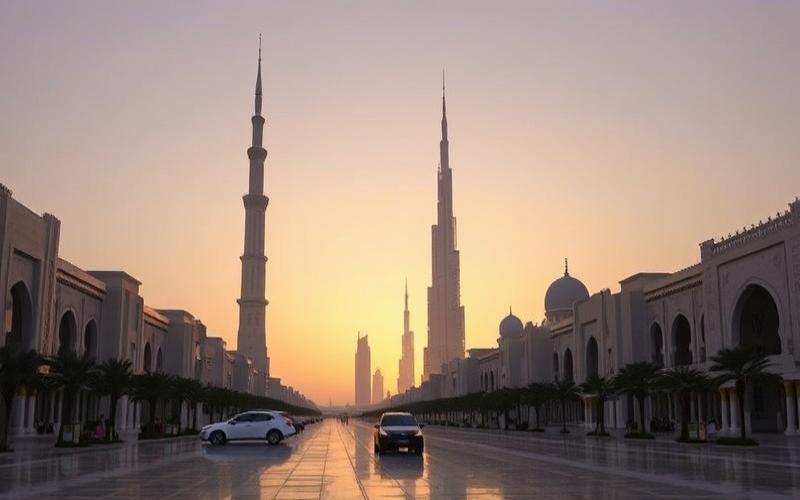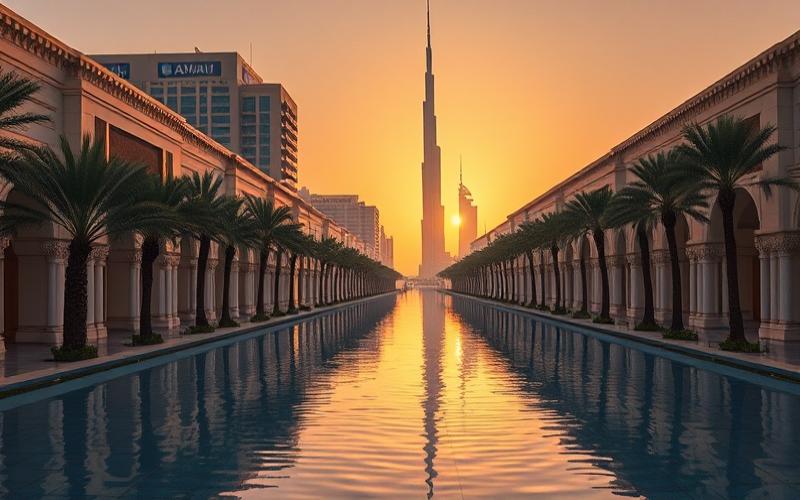
 Published on and written by Cyril Jarnias
Published on and written by Cyril Jarnias
Amid global demographic aging, Dubai’s senior living residences market is experiencing rapid growth, redefining luxury accommodation standards for older adults. By combining premium services with medical infrastructure, these residences attract not only local residents but also international clients seeking a more comfortable and secure lifestyle.
The growing interest from foreign investors reflects the sector’s exceptional profitability, while addressing increasing demand for housing solutions tailored to the specific needs of the aging population.
Major Trends in Dubai’s Silver Economy
Dubai’s senior population remains proportionally small but is gradually evolving. By 2025, the 55-64 age group represents only 3.93% of the population (approximately 150,000 people), while those over 65 constitute barely 1.15% (around 50,000 people). This relative scarcity of seniors is explained by the migration structure and Dubai’s economic attractiveness for working-age individuals. However, the gradual aging of part of the expatriate and national population is beginning to generate growing demand for specialized services and adapted residences.
| Age Group | Estimated Population | Percentage |
|---|---|---|
| 55-64 years | ~150,000 | 3.93% |
| Over 65 years | ~50,000 | 1.15% |
This dynamic is leading to the development of residential solutions offering safety, accessibility, and medical or paramedical support.
Technological innovation plays a central role in services for seniors. The growing adoption of connected devices—such as health smartwatches, telemedicine platforms, or home automation objects—enables regular remote medical monitoring and improved daily comfort. Mobile applications dedicated to wellness or physical activity are also encouraged in residential programs to enhance quality of life while promoting independence.
Senior living residences are evolving rapidly: they are diversifying their services around personalized care (on-site nurses, teleconsultation), hotel-like comfort (adapted dining, premium common areas), and overall well-being (senior-friendly fitness rooms). Some also include landscaped green spaces or social clubs dedicated to cultural leisure activities.
The regulatory framework established by the government actively encourages this emerging sector: tax incentives for foreign investors in senior-focused real estate; strict standards on universal accessibility; public programs aimed at partially covering geriatric care; institutional support for inclusive urban development.
Public-private partnerships play a driving role in this expansion. Several international operators collaborate with local authorities to import their expertise in senior-friendly property management or e-health innovations. Meanwhile, Dubai attracts significant foreign investment eager to anticipate the regional demographic aging expected in the coming decade.
Finally, there is growing emphasis on social connection through a notable strengthening of social and cultural activities offered within the residences themselves: intergenerational art workshops; organized cultural outings; adapted language clubs… These initiatives contribute not only to psychological well-being but also to medical prevention through maintaining active social connections among seniors.
In Summary:
- Currently small but expected growth in the senior segment
- Increased demand for innovative residences combining connected health & comfort
- Favorable regulations & sustained investments
- Strategic importance given to integrated social/cultural activities
Good to Know:
In Dubai, the silver economy is experiencing significant growth driven by an aging demographic that creates increased demand for senior-adapted living residences. In response to these needs, the adoption of technological innovations, such as connected health devices, is becoming widespread, supported by a senior population increasingly open to digital tools. The residences themselves are diversifying their offerings to include not only high levels of comfort but also a broader range of personalized services aimed at improving resident well-being. Supporting this expanding market, favorable government policies and advantageous regulations encourage foreign investment and the formation of public-private partnerships. Furthermore, the growing inclusion of social and cultural activities in residence programs significantly contributes to enhancing seniors’ quality of life, positioning Dubai as a leader in senior care.
The Boom in Senior Living Residences in Dubai
Factors Contributing to Increased Demand for Senior Living Residences in Dubai
- Growth in the elderly population: The proportion of foreign residents aged 55 and over reaches nearly 8% of the total UAE population, a rising share thanks to increased life expectancy (79 years on average) and the growing choice of retired expatriates settling permanently in Dubai.
- Favorable government policies: The government implements policies aimed at attracting international retirees, particularly through retirement visas or Golden Visas, thereby facilitating their extended stay and integration into the local social fabric.
- Tax benefits and real estate incentives: The absence of income tax, the country’s economic stability, and special regimes for real estate investors strongly stimulate developer interest in this segment. Incentive measures thus encourage the construction of infrastructure adapted to seniors’ specific needs.
Typical Features of Senior Living Residences
- Integrated medical services with quick access to care, presence of or partnerships with renowned healthcare operators.
- Wellness spaces (spa, adapted fitness room), paramedical centers, or programs dedicated to health prevention.
- Modern facilities designed to international standards: intuitive home automation, enhanced security (controlled access), housing adapted for people with reduced mobility.
- Expanded recreational activities: indoor/outdoor pools adapted for seniors, cultural/artistic workshops, therapeutic gardens, or secure walking paths within the residential complex.
- Active communities promoting social connection and inclusion through regular event programming.
| Feature | Detail |
| Medical Services | On-site care / facilitated hospital access |
| Wellness & Recreation | Senior-friendly spa / gentle physical activities |
| Security | 24/7 surveillance / PMR-adapted infrastructure |
| Socialization | Common areas / thematic clubs |
| Technologies | Smart home automation / digital assistance |
Recent Examples or Iconic Projects
Omoria Private Residences recently launched an ultra-luxury concept blending high-end hospitality and targeted wellness: these residences feature careful design, personalized comprehensive wellness offerings, and private hotel services. This type of offering meets both local and international expectations for high-end comfort adapted to active aging.
Pilot projects also include the direct integration of partner medical establishments in some residential complexes oriented toward the “silver economy,” as well as the planned creation of entire neighborhoods designed around senior well-being while remaining connected to major urban centers.
Economic Impact on the Local Real Estate Market
- Notable increase in foreign direct investment directed toward this class of specialized real estate assets
- Enhanced land valuation around areas hosting these new complexes
- Significant diversification of the rental market offering an attractive alternative to the traditional model
Possible Future Trends
Expected Development:
- Anticipated multiplication of hybrid concepts combining senior housing/luxury/hospitality
- Increased digitalization via e-health solutions & connected management of daily residential life
Main Challenges:
- Rapidly adapting surrounding public urban infrastructure (soft mobility/healthcare)
- Effectively addressing intercultural issues related to growing international mixing
- Maintaining balance between pricing exclusivity/effective access for the broader population
The Dubai market is positioning itself as a regional laboratory for “silver economy” innovation, attracting both investors and future international residents seeking superior quality of life combined with an advantageous tax environment.
Good to Know:
The boom in senior living residences in Dubai is driven by a notable increase in the elderly population and government policies aimed at improving seniors’ quality of life, offering attractive tax benefits to real estate developers to stimulate the market. These residences stand out through comprehensive health and wellness services, varied recreational options, and modern adapted facilities, such as advanced security systems and socialization spaces. Recent projects, such as the development of integrated communities like The NEST at Wasl, highlight the sector’s rapid growth and its positive economic impact. The market continues to expand, although challenges include the need to innovate in service offerings and maintain financial accessibility for all senior segments, a crucial point for sustaining this expansion.
Investment Opportunities in Assisted Living and Medicalized Residences
The market for assisted living and medicalized residences in Dubai is undergoing significant transformation, aligning with the exceptional real estate dynamics observed in 2024. With an average 27.5% increase in residential values in Dubai last year, the medicalized facilities sector benefits from a favorable economic context.
The assisted living sector is currently experiencing a significant consolidation period, characterized by mergers and acquisitions that are reshaping the competitive landscape. This evolution is accompanied by increased professionalization and standardization of quality practices, as well as growing internationalization with the arrival of foreign groups bringing new approaches.
Innovations and Current Trends
Medicalized facilities in 2025 now integrate advanced technologies serving resident well-being:
- Adapted home automation
- Telemedicine
- Applications facilitating communication with families
The architecture of new facilities is also evolving, with particular attention paid to:
- Natural light
- Modular spaces
- Therapeutic gardens
Ecological Dimension and Sustainable Development
The ecological dimension occupies an increasingly important place in the design and management of assisted living facilities in Dubai. Recently built or renovated facilities incorporate demanding environmental standards:
- Solar panels
- Rainwater harvesting
- High-performance insulation
Outlook for 2025 and Beyond
Although 2024 was marked by exceptional real estate growth in Dubai, indicators suggest possible moderation in 2025. However, with over 142,000 units launched in 2024, the market remains fertile ground for investors in the medicalized facilities sector.
Dubai’s real estate market, measured by the ValuStrat Price Index (VPI), recorded monthly growth of 1.7% in December 2024, reaching 200.7 points. This positive trend is expected to continue positively influencing the assisted living and medicalized residences sector.
| Property Type | VPI Points (base 100 in January 2021) |
|---|---|
| Villas | 259 |
| Apartments | 162.8 |
| Global | 200.7 |
Sustained demand should continue to fuel growth in 2025, offering significant opportunities for investors in the medicalized facilities sector, particularly in a context where investors seek solutions combining yield, security, and social impact.
Good to Know:
The market for assisted living and medicalized residences in Dubai is experiencing rapid growth, with a current occupancy rate approaching 85% and projections suggesting annual growth of 7% over the next five to ten years. This dynamism is primarily attributed to the accelerated aging of the local population, which increases demand for these facilities. The Dubai government supports this sector through attractive tax incentives and favorable policies, making the investment environment particularly advantageous. One success example is investment in Dubai Healthcare City, which has generated substantial returns on investment. However, investors must be aware of challenges such as strict regulations, high construction costs, and growing competition; these aspects can be overcome through strategic planning and careful assessment of market opportunities.
Disclaimer: The information provided on this website is for informational purposes only and does not constitute financial, legal, or professional advice. We encourage you to consult qualified experts before making any investment, real estate, or expatriation decisions. Although we strive to maintain up-to-date and accurate information, we do not guarantee the completeness, accuracy, or timeliness of the proposed content. As investment and expatriation involve risks, we disclaim any liability for potential losses or damages arising from the use of this site. Your use of this site confirms your acceptance of these terms and your understanding of the associated risks.

